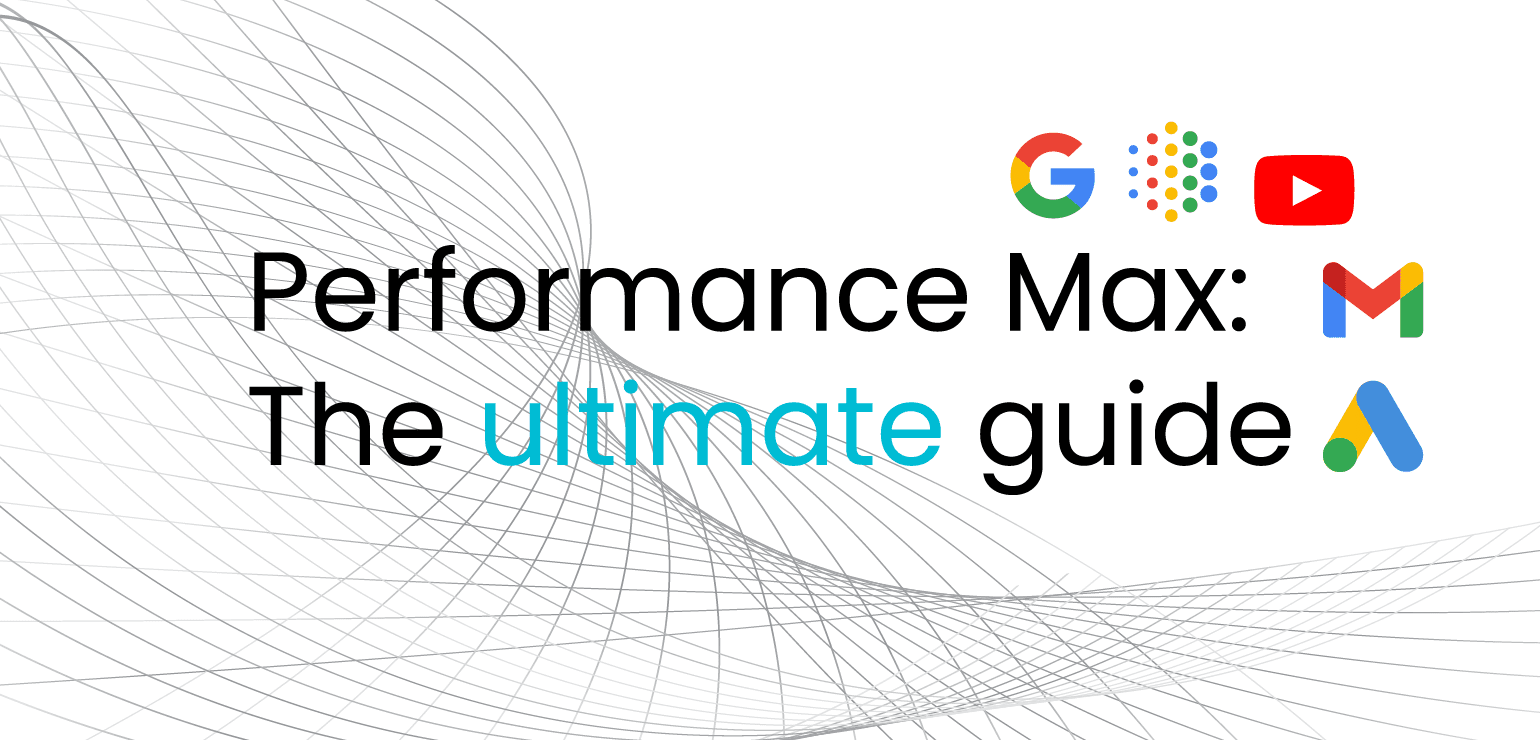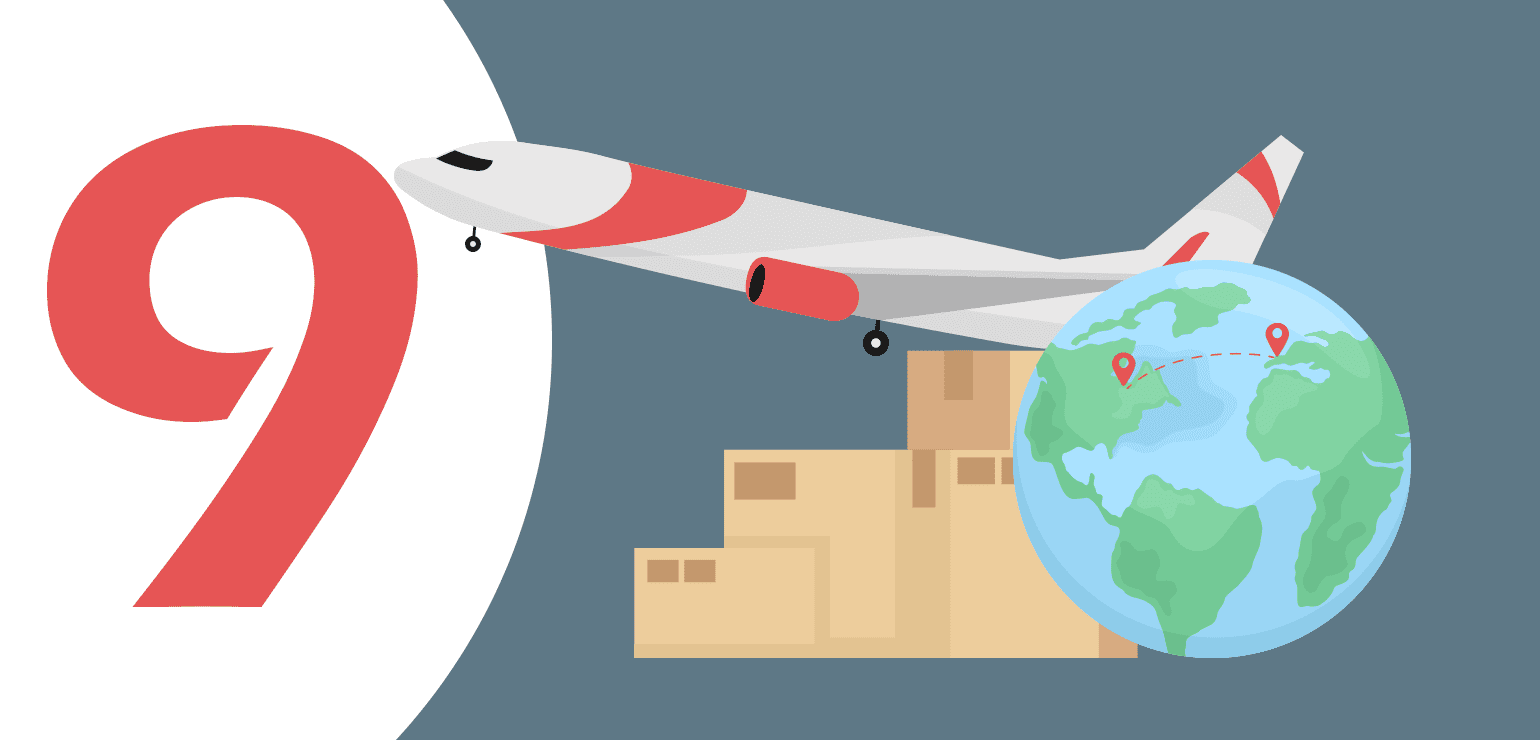A new eCommerce reality?

Article topics
- Sustainability
- Online/offline
- Covid-driven technology
- Drones and robots
- Augmented reality
- Outlook
- Final thought
Until recently the media and business had been talking in terms of ‘post-pandemic’. It was, understandably, assumed that there would be a return to how things where before Covid-19. It is however becoming clear that an ‘after Covid’ world isn’t going to happen anytime soon, if ever. This is proving especially true for our relationships with technology: the way we communicate and the way we consume products and services.
The pandemic has had an as yet incalculable long-term impact on how we shop and what we buy. But months into lockdown we are beginning to get a clearer picture of what’s going on. Some eCommerce sectors have seen a rise in sales, while sales in other sectors have dropped. Brick-and-mortar retail has been severely impacted, with lockdown causing many retailers to close their doors for good. In the UK, retail sales dropped by a record 5.1% in March.
Yet food shopping online has risen during lockdown, with UK supermarkets experiencing a 20.6% rise in sales. And it’s estimated that 600,000 households tried online supermarket shopping for the first time during lockdown.
As predicted, the fashion sector was hard hit, falling by more than 23%, and helped by the warmer weather throughout March, sales of gardening tools and supplies rose by over 94%.
As the pandemic passes its peak and lockdown begins to be relaxed, we will return to a more normal life, albeit a new normal, as the months of hard lockdown and the gradual release from it will have left its mark on the national consciousness. We have all had to become accustomed to living differently, quickly adopting new behaviours, routines and habits. We have all had to live with less and think a little bit more about what we consume.
What impact will this have on how we shop?
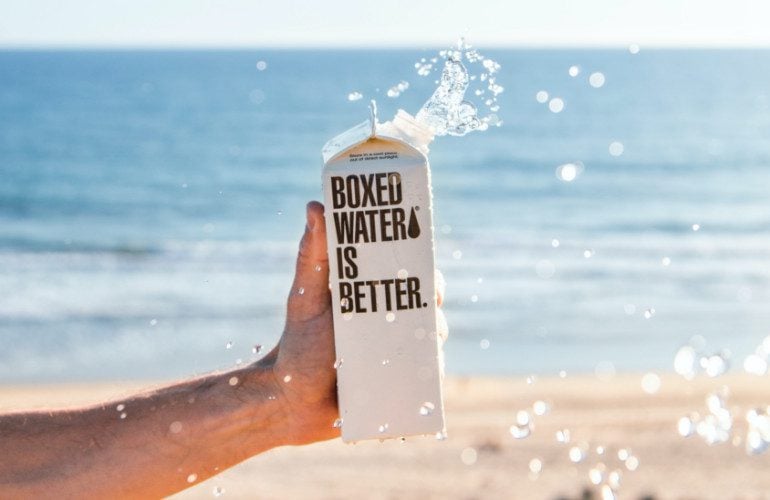
1. Sustainability
Has the pandemic made us more conscious about the fragility of our society as we watched the supermarket shelves empty and supply chain struggle to cope? Add to this the government telling us to only shop for essential items as infrequently as possible, and it’s easy to see how many of us might be questioning our pre-pandemic habits, perhaps considering a more sustainable way of shopping.
During lockdown the reduced number of trips we’ve been able to take to the supermarket has forced us to better plan what groceries we bought for longer gaps between shopping. We are buying more bulk, dried, tinned and frozen foods, as shopping frequently for fresh produce is no longer possible. And fewer trips to the shops for many of us means less driving, cutting vehicle emissions and reducing our carbon footprint.
The closure of restaurants during lockdown, and the added time on our hands at home, has encouraged many of us to explore creative cooking in our own kitchens. The emerging idea of meal kits ordered online has taken off with companies such as Gousto, Mindful Chef and others offering fresh ingredients for meals ordered online to cook at home. A similar idea has also seen organic vegetable box sales leap as many people want to continue to consume healthier and more sustainable foods.
The pandemic may also have caused people to become more conscious of the waste they produce due to unnecessary and unplanned grocery spending. It would be naive to assume that a majority of consumers will adopt a more sustainable attitude to their grocery shopping habits, but it is certainly conceivable that some of us will change our grocery shopping behaviour to reduce food waste for a lasting, positive environmental impact.
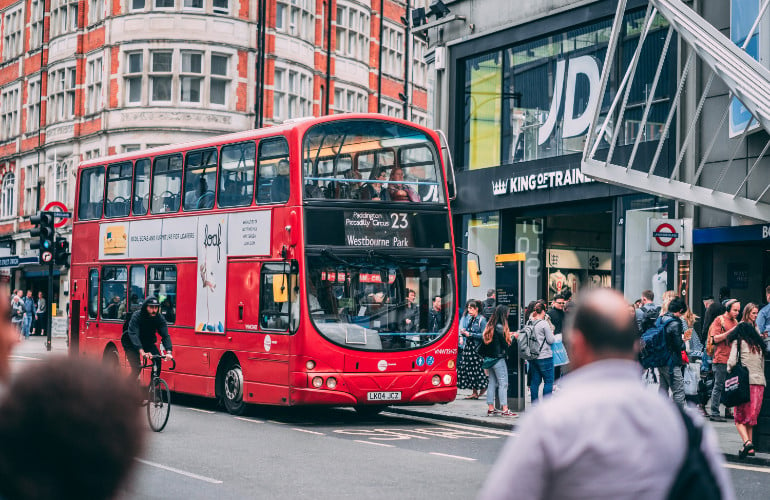
2. Online/offline
Will the rise in eCommerce sales continue as lockdown is relaxed? Given the number of people who have in the past few months shopped online for the first time, it seems logical to assume that a significant number will continue to do so. With social distancing remaining as lockdown begins to lift, online shopping in many sectors will continue to thrive. But what about brick-and-mortar retail?
There is an emerging trend for physical retailers who have been forced to close their doors due to the pandemic to begin adopting a ‘dark store’ approach to their brick-and-mortar shops.
For example, Levi Strauss, forced to close most of its stores, has begun to implement a ship-from-store service for its eCommerce customers. The reason stated by Levi’s for expanding ship-from-store is to better manage its inventory and also as a precaution against distribution centre closure because of the pandemic.
Another example is the bookseller, Blackwell’s. They are using their huge Oxford Street flagship store to pick online orders. The Blackwell’s dark store operates with just six pickers managing more than 100,000 titles. Kieron Smith, digital director at Blackwell’s, said: “We’re picking from distance and it’s much easier to do when the shop is closed, so we’re using that as a mini warehouse as well as distribution centre.”
Majestic Wine has also adapted its business model to 100% delivery. This has meant Majestic repurposing its whole network to become dark stores serving local communities.
John Colley, executive chairman & CEO of Majestic Wine: “We made the decision to close our doors to the public and, instead, use our fleet of 200 vans nationwide to continue to offer home delivery. That way we can keep our people safe by dramatically limiting the number of people in our stores at any one time, and still continue to serve our customers during this difficult time.”
Dark stores are one way that retailers are adapting to the challenges presented by the pandemic. They can improve customer experiences with a brand and business, providing easier access to products, blurring the line between shopping online and offline.
The technology needed to enable brands and businesses to adapt to the pandemic as it plays out and beyond are already here. But it won’t be easy for many eCommerce and brick-and-mortar businesses to acquire and implement new technologies. They will need to invest in infrastructure, training and partner with technology specialists.
3. Covid-driven technology
A positive effect of the pandemic for consumers is an acceleration in the rate at which brands and businesses are adopting new technology. Two of the biggest technological changes for consumers will be the growing use of drones and robots, and the prevalence of augmented reality to enhance online shopping experiences.
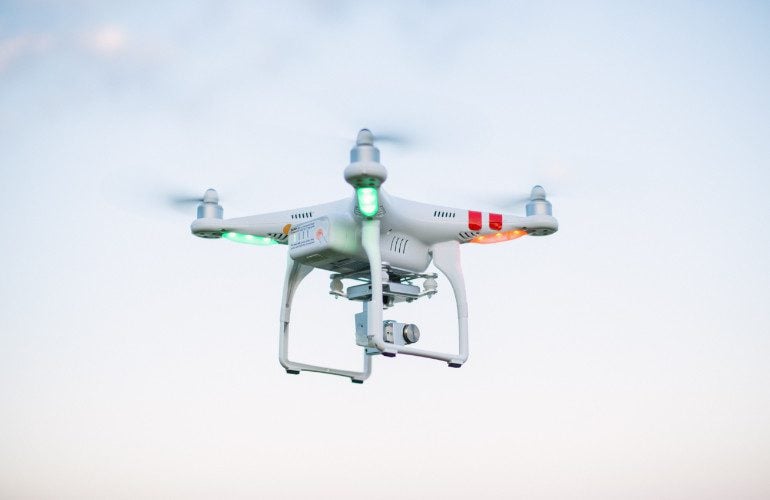
4. Drones and robots
One of the most important things to get right for successful eCommerce is fast and robust logistics. eCommerce brands and businesses have during the pandemic increased the use of contactless delivery services, with items being dropped off and collected from designated locations.
A way of ensuring that deliveries get to their destination, and some services can continue in spite of the pandemic, is to use technology such as drones and robots. This may seem to some people like science fiction, but delivery drones and robots are emerging technologies, with their development and use increasing due to the pandemic.
The use of drones and robots to deliver medical supplies to infected areas has seen an increase in China. And on a smaller scale, robots are being used in restaurants to cook and serve food. As these technologies begin to prove themselves, and protocols are put in place to regulate their use, it’s likely that their use will become more widespread.
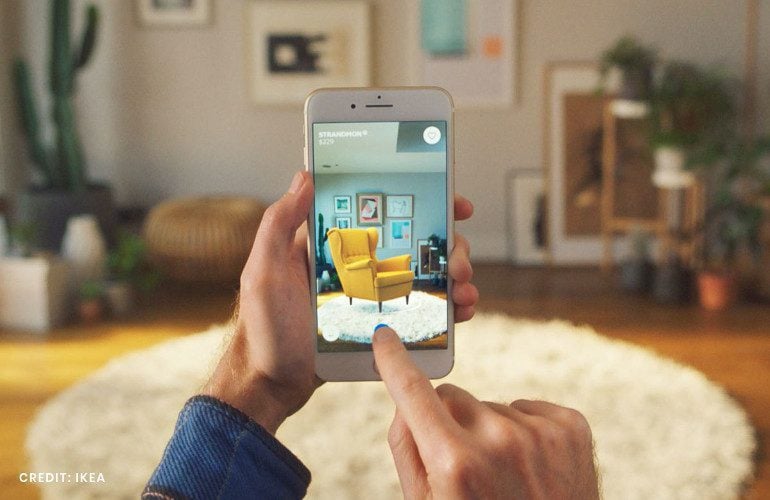
5. Augmented reality
There are some products that are easier to purchase online than others. While buying books, electronic goods and groceries etc. is fairly straight forward, buying items such as clothes or home furnishings can be problematic—what will those trainers look like on? Will that chair work in my living room? Augmented reality (AR) helps shoppers visualise what products will look like in their particular situation.
AR is an interactive technology that uses phones and tablets to create images that combine an online product with the real world. To see what a chair from Ikea would look like in your house, take a photo of a room and then place the chair in the picture to get a better feel for how it will work with your furniture and decor. Similarly, the same process can be applied to clothing, such as trainers.
As AR technology becomes more prevalent, buying becomes easier and returns are reduced, as shoppers make more informed choices about what they buy.

6. Outlook
Nobody is quite sure what the economic impact of the pandemic will be in the long term. The consensus is that global recession is likely—UK GDP could fall at a quarterly rate of 7%.
As far as consumer confidence is concerned, a recent McKinsey report revealed that 58% of the UK believe that the economy will be impacted for up to a year or longer and will stagnate or show slow signs of growth, with 27% saying that the pandemic will have a lasting impact in the economy and slow into a lengthy recession.
Consumers will understandably be cautious. However, the psychological effect of coming out of a long period of isolation, the relief and air of optimism, could drive a boost in shopping spend as consumers celebrate.
As many people question the way in which they consumed products pre-pandemic, businesses and brands will have to ensure that their relationships with consumers and their customers evolve to reflect a change in attitudes towards shopping. Being more ethically minded, adopting new technologies and focusing more on customer lifetime value will improve long term engagement, giving some brands and businesses an edge in the new Covid reality.
Final thought
In these uncertain times many eCommerce and brick-and-mortar retailers are evolving to meet the challenges created by the pandemic. What shopping will look like in the future is not certain. But what is certain is that it will involve more technology, more omnichannel experiences, in a low touch environment.
Is your eCommerce business evolving to meet the new challenges ahead? Find out how we can help your business continue to grow. Get in touch today for a chat with one of our eCommerce specialists.


 Back
Back